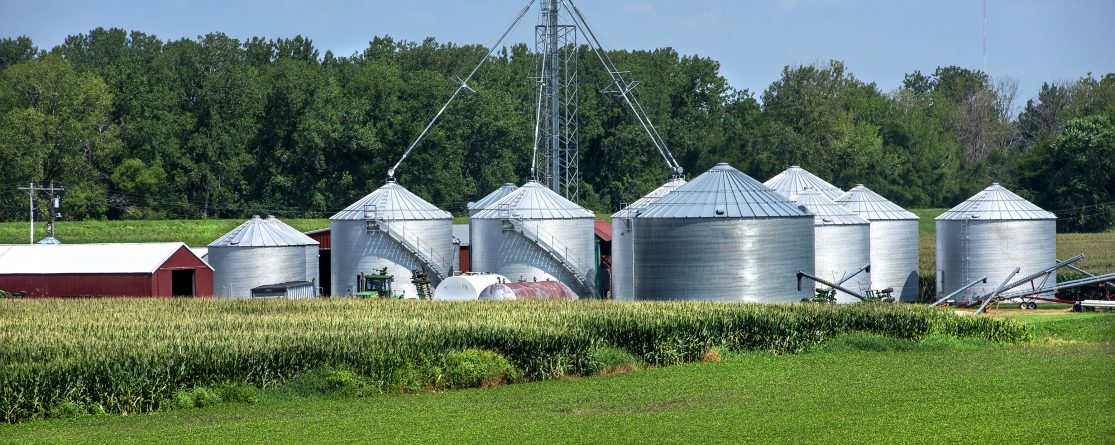As we’ve mentioned before, one of the things we like most about a career as a claims adjuster is the variety: the variety of locations you can work in, the different types of claims, and the option to specialize in an area you are passionate about. Agricultural claims adjusting is not only one of these specializations, but a field that is in high demand right now.
Let’s take a look at what an agricultural claims adjuster does (and doesn’t do) and what steps to take if you want to get involved in this specialized niche of adjusting.
Agricultural Claims vs Crop Claims
Before we talk about what an agricultural claims adjuster does, it’s important to talk about what they don’t do.
To put it simply: every farm has (at least) two insurance policies: the policy that covers the crops, and the policy that covers everything else.
A crop adjuster works solely on claims submitted under a crop insurance policy. And for the most part, crop insurance covers normal weather-related perils and disasters that affect a crop: hail, wind, drought, etc. But how the weather affects crops is only a small part of a working farm or ranch. And that’s where agricultural claims come in.
Agricultural claims are usually part of a P&C or liability policy and cover almost everything else on a farm or ranch. These are handled by licensed adjusters who specialize in these types of claims.
Let’s look at the example of the Midwest Derecho that struck Iowa in August 2020. The millions of acres of flattened and destroyed corn fall under the farmer’s crop insurance policy. But the storm’s damage extended far beyond the fields. The grain storage units and silos were heavily damaged with many completely destroyed. The farm outbuildings for storage, equipment, animals, etc. also took heavy losses. Equipment, vehicles, fencing: these are all parts of a working farm that do not fall under the crop insurance policy.
Agricultural claims go beyond storm damage as well. Dryer fires and explosions aren’t uncommon as farms use heavy-duty equipment and fertilizers in their operations. Livestock can escape and cause damage. Some of the most common issues are those related to chemicals and fertilizers. Whether it’s fertilizer drift from one field hurting crops in another, or a new chemical brought to market that ends up damaging yields, these claims also fall to an agricultural adjuster.
Due to the nature of agricultural claims, it’s important to assign an adjuster who is educated on the issues and knows what they are doing when they step onto a farm or ranch.
Benefits of Specializing in Agricultural Claims
For those interested in agricultural claims, becoming a specialist in this field offers some great benefits.
Travel
We may call the Midwest “America’s Breadbasket,” but the truth is that agriculture is big business all across the U.S. And so are agricultural claims. From Florida oranges to California grapes, from Georgia peaches to Idaho potatoes, Wisconsin dairy to Washington apples: we grow something almost everywhere.
Agricultural claims give you the opportunity to experience and see the variety of America. And according to the Agricultural Claims Association, around 80% of claims still require inspection so ag adjusters spend a lot of time with boots on the ground.
Stand-Out Adjuster Resume
Most insurance carriers have at least a small piece of the agricultural claims pie. It may not be a big slice, but it’s enough to where those that specialize in this field can help separate themselves from the pack when an ag specialist is needed. If you’re a P&C adjuster, this is a niche where you can become a go-to adjuster.
Uncrowded Field (Pun intended)
To be frank, there aren’t a ton of adjusters that specialize in agricultural claims. For example, right now most experienced ag adjusters are in the Midwest working claims from the aforementioned derecho…and they are likely to be there for months. It presents an opportunity for those that are interested in this niche to help with daily or regular agricultural claims and make a name for themselves in this specialized field.
One additional note worth mentioning: the lack of agricultural adjusters might be attributed to the misunderstanding that you have to have an agricultural or farming background. But that isn’t necessarily the case. Like other specializations, becoming an ag adjuster requires committing to training and education. But with dedication, even a city slicker can become a pro.
Agricultural Claims Association (ACA)
If we’ve piqued your interest, I encourage you to visit Agricultural Claims Association. They offer a ton of resources and education for agricultural claims adjusters and those interested in the field. From training videos to case studies to mentorship, membership can help get you started down the path of becoming a true agricultural specialist.
We’ve partnered with ACA to offer agricultural claims courses online. Members receive a 37.5% discount but anyone is welcome to take our courses. Texas adjusters can get continuing education credits as well.
View AdjusterPro’s Agricultural Insurance Adjuster Courses
No matter where you are at in your claims adjuster journey, continuing to learn and make yourself better is key. Finding an area to specialize in is a great way to do that.



